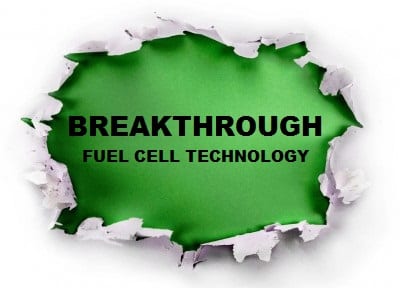New prototype could be a boon for fuel cell technology
May 6, 2015Trenergi makes a major breakthrough in fuel cell technology with its new energy system
Trenergi, a developer of hydrogen fuel cell technology, has demonstrated its new fuel cell prototype to investors. The prototype system produces 1 kilowatt of electrical power and features a design that is quite unlike conventional fuel cells. Trenergi suggests that the new fuel cell is capable of producing electrical power in an efficient and environmentally friendly manner from most forms of existing fuels. The fuel cell, like its conventional counterparts, also producing heat.
New fuel cell reaches 90% energy efficiency level
Trenergi suggests that its new fuel cell represents a “dramatic leap forward” for fuel cell technology. The company claims that its new energy system is much more efficient than any other fuel cell system. The system is also designed to operate using nearly all available hydrocarbon fuels. According to Trenergi, the new fuel cell system has achieved a 90% energy efficiency level and is able to save as much as 44% of the electrical power it produces.
Energy system could be used to meet household electricity demand and heat water
 The new fuel cell system can produce approximately 24 kilowatt-hours of energy a day, which is roughly comparable to 80% of the energy consumption of an average household in the United States. The system can also heat nearly 160 gallons of water every day, doing so more affordably that conventional heating methods. This fuel cell system could be quite effective in a microgrid, where energy is supplied to a relatively small community or businesses.
The new fuel cell system can produce approximately 24 kilowatt-hours of energy a day, which is roughly comparable to 80% of the energy consumption of an average household in the United States. The system can also heat nearly 160 gallons of water every day, doing so more affordably that conventional heating methods. This fuel cell system could be quite effective in a microgrid, where energy is supplied to a relatively small community or businesses.
Another prototype fuel cell is being tested by a defense contractor
Trenergi has also developed another prototype fuel cell that produces 3 kilowatts of electrical power. This fuel cell is currently being used by a defense contractor as part of a testing phase. These new fuel cell systems could play a major role in bridging the gap between the world of conventional energy and renewable energy. It may also unlock a more affordable future for fuel cell technology and make these energy systems more attractive to those interested in renewable energy.

 HFN News is your leading source for fresh hydrogen and renewable energy updates. Amid the fast-paced growth of hydrogen companies, we provide top-notch news and insights about this exciting sector. Our coverage spans from hydrogen cars to global sustainable initiatives, and we highlight the latest in green jobs and developing hydrogen hubs. We invite you to share your local hydrogen news and explore today’s renewable energy job listings on our site. Thanks for choosing HFN News as your trusted guide to the hydrogen and renewable energy world!
HFN News is your leading source for fresh hydrogen and renewable energy updates. Amid the fast-paced growth of hydrogen companies, we provide top-notch news and insights about this exciting sector. Our coverage spans from hydrogen cars to global sustainable initiatives, and we highlight the latest in green jobs and developing hydrogen hubs. We invite you to share your local hydrogen news and explore today’s renewable energy job listings on our site. Thanks for choosing HFN News as your trusted guide to the hydrogen and renewable energy world!